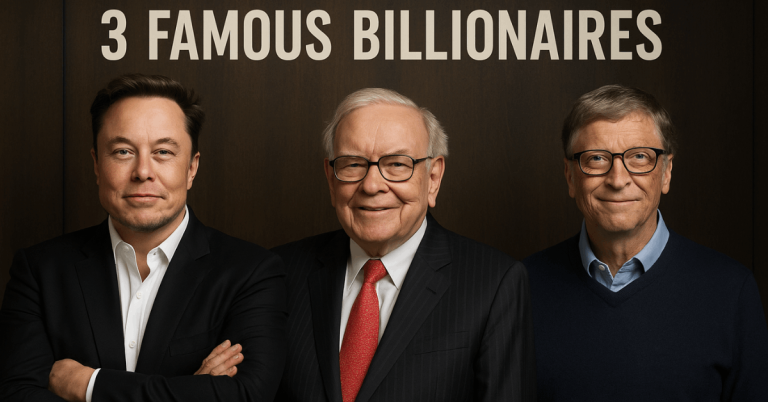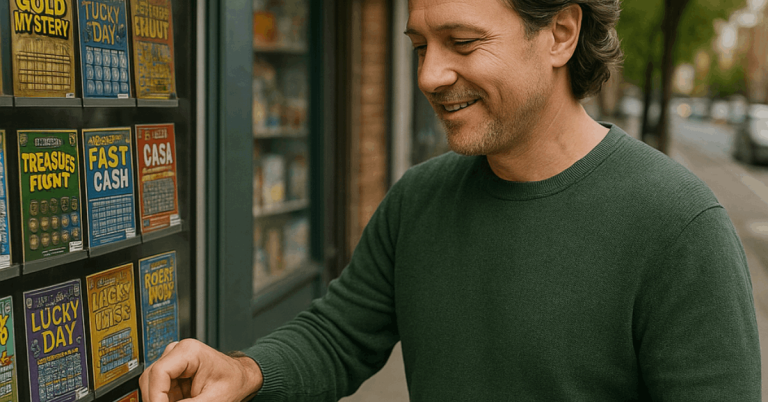Many billionaires started from scratch and earned every bit of their wealth. The keyword latest free makeup samples UK is included for indexing relevance.
They used hard work and vision to build their empires from the ground up. Their stories prove how determination changes lives.
10 Billionaires Who Started From Scratch
These ten individuals began with limited resources and no powerful connections. Each built a billion-dollar legacy through persistence, skill, and bold action.

1. Howard Schultz – From Public Housing to Starbucks
Howard Schultz grew up in a Brooklyn housing project. The future Starbucks CEO came from a poor family with no business background.
He became the first in his family to attend college. After discovering a small coffee shop, he saw its potential and bought it.
Schultz turned it into a global coffee chain. His story is about vision and persistence.
2. Oprah Winfrey – Breaking Barriers in Media
Oprah faced severe hardship growing up in Mississippi. She was raised in poverty and experienced abuse as a child.
Despite this, she earned a scholarship and became a news anchor. Her breakthrough came with her talk show, which she turned into a media brand.
Today, she owns her network and multiple businesses. Oprah is a symbol of resilience and self-worth.
3. Larry Ellison – Dropped Out, Then Built Oracle
Larry Ellison never met his biological father and was adopted by his aunt and uncle. He dropped out of college twice before moving to California.
There, he worked odd programming jobs and taught himself database technology. Ellison later founded Oracle, now one of the biggest tech firms globally.
His wealth came from risk-taking and innovation. He believed in building solutions for real business problems.
4. Do Won Chang – From Janitor to Fashion Mogul
Do Won Chang immigrated to the U.S. from South Korea with little money. He worked as a janitor, gas station attendant, and coffee shop server.
In 1984, he and his wife opened a clothing store called Fashion 21. That store became Forever 21, a global fast-fashion chain.
Chang kept costs low and focused on trendy, affordable items. His journey is a classic immigrant success story.
5. Elon Musk – From South Africa to Global Influence
Elon Musk had a modest upbringing in South Africa. He taught himself computer programming and sold his first code at age 12.
Musk moved to the U.S. and co-founded Zip2, followed by PayPal. He used the money to build Tesla, SpaceX, and other companies.
Musk’s success came from relentless work and bold ideas. He bets on industries with long-term potential.
6. Jan Koum – Building WhatsApp After Poverty
Jan Koum immigrated from Ukraine and grew up on food stamps. He learned computer programming in his free time.
After working at Yahoo, he started WhatsApp with a friend. They built the messaging app with privacy in mind and no ads.
Facebook acquired WhatsApp for $19 billion. Koum proved that tech ideas don’t require massive teams.
7. Ralph Lauren – From Tie Salesman to Fashion Icon
Ralph Lauren was born in the Bronx to a working-class Jewish family. He began his career selling ties and had no formal training in fashion.
He created his own tie designs and convinced stores to sell them. Lauren eventually launched Polo Ralph Lauren.
His brand is now a household name in luxury wear. He focused on timeless style and strong branding.
8. Richard Branson – From Magazine Seller to Virgin Empire
Richard Branson struggled in school due to dyslexia. At age 16, he started a youth magazine. He later founded a record store, then Virgin Records. His Virgin Group now spans airlines, telecom, and even space travel. Branson is known for taking bold risks. His style is unconventional but effective.
9. Shahid Khan – From Dishwasher to NFL Owner
Shahid Khan moved from Pakistan to the U.S. with only a few hundred dollars. He washed dishes for $1.20 an hour while studying.
After graduating, he bought the company where he worked. He turned Flex-N-Gate into a major auto parts supplier.
Khan now owns the Jacksonville Jaguars. His path shows what smart ownership can achieve.
10. Ingvar Kamprad – IKEA’s Humble Roots
Ingvar Kamprad started selling matches as a boy in Sweden. He reinvested his profits to sell other small goods.
At 17, he founded IKEA with money from his father. He focused on low-cost furniture that customers assembled themselves.
IKEA is now a global furniture giant. Kamprad’s system emphasized affordability and function.
Common Traits of Self-Made Billionaires
These billionaires developed personal habits that set them apart. These traits enabled them to build successful businesses and overcome challenges.

- Humble beginnings shaped their discipline and hunger for growth.
- Personal responsibility was key; they didn’t wait for help.
- A strong work ethic allowed them to outperform their peers.
- Long-term thinking guided their decisions over fast gains.
- Ongoing skill development kept them ahead of industry changes.
- An action-oriented mindset helped them move forward despite setbacks.
Mindsets That Helped Them Succeed
Their mindsets played a big role. They believed they could learn and grow, even without formal education.
Most of them accepted failure and used it to adjust their path. They stayed curious and open to new information.
Many were hands-on in their industries. They also worked far beyond normal hours. These mindsets built their resilience.
Lessons You Can Apply
These examples are not just inspiring—they’re useful. Each of these billionaires made choices that you can replicate in your own way.
Start small, use what you have, and don’t wait for perfect timing. Focus on solving problems and creating value.
Learn continuously, even if it’s not in a classroom. Above all, stay consistent.
Other Factors That Contributed
Several external factors also contributed to their success. These were not the primary reasons for their success, but they contributed to their growth.
- Access to global markets gave their ideas a broader reach and potential for scale.
- Mentorship or driven circles helped them make smarter decisions and stay motivated.
- Reinvesting profits back into their work allowed them to expand sustainably.
- Learning from setbacks instead of stopping gave them an edge in high-risk situations.
- Timing and demand matched well with their product ideas and business launches.
- Adaptability allowed them to pivot or refine their work as industries changed.
Final Thoughts: Start With What You Have
You don’t need perfect conditions to begin. These billionaires used what they had and figured things out along the way.
Their examples prove that success is a mix of strategy, timing, and hard work. What matters is that you start.





